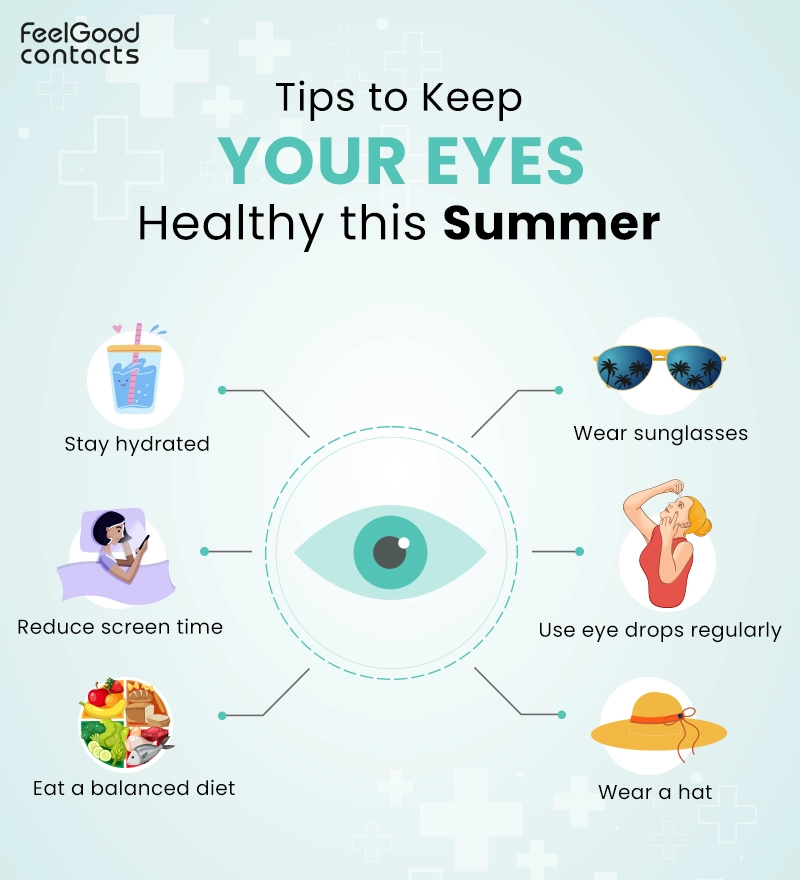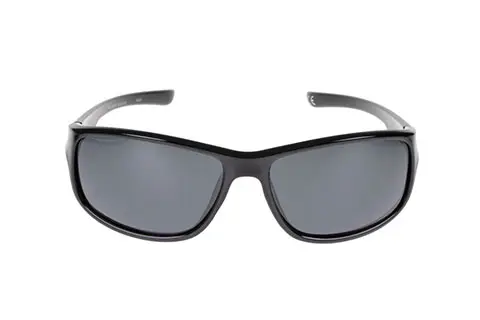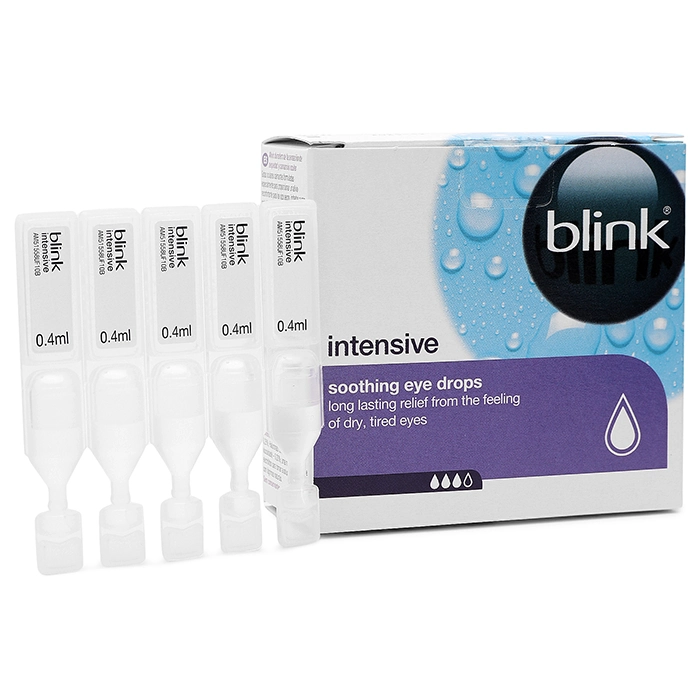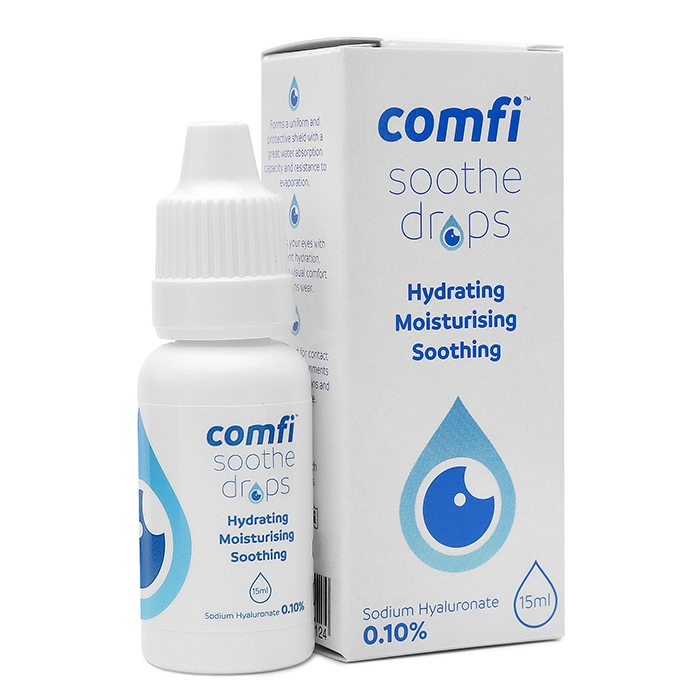During the summer months, when the warmth and brightness of the sun lure us outdoors, it's crucial to be mindful of the potential impact that the warm weather can have on our eye health. High temperatures and changes in humidity can be harmful to our eyes. While many of us diligently apply sunscreen to shield our skin from harmful UV rays, it's important to remember that our eyes require similar care and protection.
Our contact lens optician, Tina Patel, states that ‘Warm weather can invite many eye-related issues. The accelerated evaporation of natural tears, an increase in allergies, and a rise in sun exposure makes it important to take extra care of your eyes during summer.’
Summer eye problems
The eyes can be affected by all sorts of weather, and while eye problems can be experienced at any time of year, certain eye issues are more prevalent during summer. Here are some common summer eye health problems:
Dry eyes
Many people complain about dry eyes in hot weather. This happens because the tear film, which keeps the eyes moist and protected, dries up more quickly when it's hot and less humid. The increased use of fans and air conditioning can also cause dry eyes and discomfort. Dry eyes can cause a gritty feeling in the eyes, irritation, and sometimes even blurry vision.
Increase in allergies
The warmth of summer may bring an unwelcome guest: heightened allergic reactions. Airborne allergens, such as pollen and dust mites, thrive in these conditions, triggering an inflammatory response in the eyes. This response can lead to itching, watering, and redness, creating a persistent urge to rub the eyes, which can further exacerbate the problem.
More sun exposure
People love to step out and enjoy the sun. Perhaps the most concerning consequence of increased sun exposure during summer is the rise in ultraviolet (UV) radiation reaching the eyes. Unfiltered UV rays can inflict sunburn on the cornea, a condition known as photokeratitis. Additionally, chronic exposure to UV radiation is a contributing factor in the development of cataracts and age-related macular degeneration, a leading cause of vision loss.
Pterygium/pinguecula
It's important to remember that the sun's rays can cause more than just sunburn. Without protection, UV light exposure can lead to eye conditions such as pterygium or pinguecula. To safeguard your eyes from harmful UVA and UVB rays, it's essential to wear high-quality sunglasses with UV protection.
Increased risk of infection
Certain summer activities, such as swimming and camping, can increase the risk of eye infections by exposing your eyes to pathogens like acanthamoeba, which can lead to acanthamoeba keratitis.
Tips to care for your eyes during summer

Fortunately, a proactive approach can mitigate the negative effects of hot weather on your eyes. Here are some essential steps to incorporate into your summer routine:
- Stay hydrated: Prioritising adequate water intake ensures your body produces sufficient tears to keep your eyes lubricated.
- Wear sunglasses: Invest in high-quality sunglasses that block both UVA and UVB rays. Opt for wraparound styles for optimal protection against rays entering from the sides.

 Offers
Offers Account
Account
 Favorite
Favorite
 Basket
Basket

 OFFERS
OFFERS





















